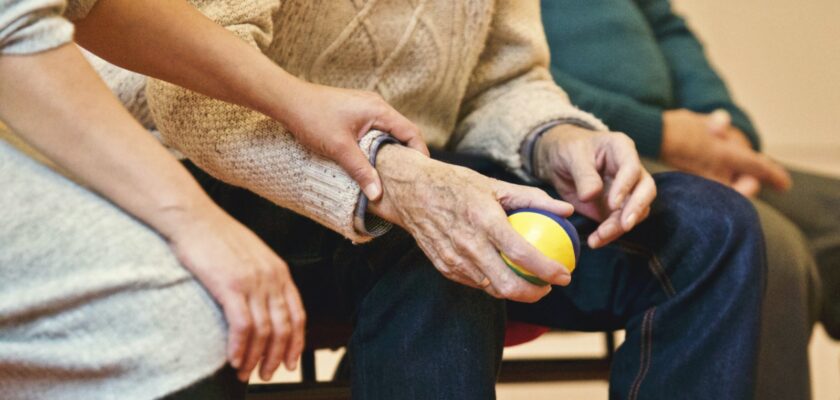There is no definitive answer as to at what age one should stop having sex. Each individual is different.
Nevertheless, there are certain patterns that can be observed in people’s sexual life expectancy. These patterns range from aging to health issues like erectile dysfunction. These are some of the factors that can determine if you continue or stop having sex.
Age isn’t the only factor
People in their 60s, 70s, and even 80s can maintain a healthy sex life. Those in a committed relationship may find that they’re less interested in sex after the kids have moved out and the hot flashes of menopause have subsided, but it is still possible to make love on a regular basis and have a fulfilling life as an older couple.
It is important to be open-minded about sex as we age, and to communicate with your partner about what you each want from each other sexually. Foreplay is also an important part of a sex life, and it can help increase the pleasure of intercourse. It’s also important to use spermicide-coated condoms to prevent the spread of sexually transmitted infections (STIs).
If you are concerned about a decline in your sex drive, it’s worth discussing this with your doctor. There may be a medical reason that’s contributing to this, such as a lowered hormone level or an ongoing health issue like erectile dysfunction (ED). Medication can be a powerful tool in treating ED and may be worth trying.
It’s also possible to abstain from sex completely, and this is an option that should be considered carefully. It’s important to understand why you’re choosing to do so and to consider whether it will negatively impact your relationship or your mental health.
Health
Men can remain sexually active into their 70s and beyond if they are in good health. They should eat a healthy diet, stay physically active and avoid tobacco, excessive drinking and drugs. Regular sex can also reduce the risk of heart disease. Men can continue to enjoy sex even as their bodies age because it burns few calories and boosts the immune system.
Women’s bodies and sexual desires change throughout life. Hormones shift, and many women experience lowered libido or difficulty reaching climax. The key is to find what works best for you and your partner.
Interest in sex in your 60s and 70s tends to be lower than at other times of your life, but it’s still possible to keep up with this activity as long as you are physically and emotionally healthy. It’s important to talk to your doctor if you are concerned about sexual issues.
It’s not just your age that affects your sex drive, but your overall health. It’s a good idea to maintain a balanced diet, take medication regularly and get plenty of exercise. It will also help to see a doctor if you are having sex for the first time or if you have any other physical or emotional concerns. They will be able to help you work through these issues and improve your sex life.
Relationships
There is no one-size-fits-all answer to this question, as women’s sexual desires can vary based on their life stages. However, it is generally safe to say that a woman’s sexual activity tends to decrease as she gets closer to menopause. This is due to a number of factors, including her physical and emotional well-being, relationship satisfaction, and life circumstances.
Women who are happily married or in committed relationships may find that their sex lives continue to be satisfying well into their later years. It is important for couples to communicate openly about their sexual needs and desires, especially as they get older. It is also a good idea to try new things, such as foreplay and oral sex, in order to increase pleasure and prolong the experience.
Men may also find that their sex lives become more fulfilling as they get older. This is because they know their bodies better and have more confidence in their sexual ability. They may also find that they are less concerned about pregnancy and have more time to focus on lovemaking with their partner. However, it is important to note that some men do lose interest in sex over time, which may be due to health issues or problems in their relationships. If this is the case, it’s important to talk to a healthcare professional for guidance and support.
Emotions
While it may seem obvious that sex and emotions are linked, it isn’t always that easy for people to keep them separate. It can be especially hard for young women who are navigating their bodies and emotions through a sexual awakening. Girls have a much higher emotional quotient than boys, and having sex before the age of 18 can carry more baggage.
As a person grows older, they can start to feel that their interest in sex has decreased or even stopped altogether. Depending on the circumstances, this could be completely fine, especially if they have a good relationship and aren’t having any problems. However, it is important for people to consider how their emotions are impacted by sex before they make a decision to stop or continue.
It’s also important to remember that sex can be used as an outlet for negative feelings, including anxiety, depression and addictions. This can cause a lot of stress and may lead to problems in a relationship. It is important to know how to recognize and treat these issues before they become sexual problems, which can be dangerous for the partner as well as their health.
Leigh Noren is a sex therapist with a Master’s degree in Sexology. She helps couples reduce the shame and anxiety surrounding sex, so they can reconnect in a more satisfying way.

